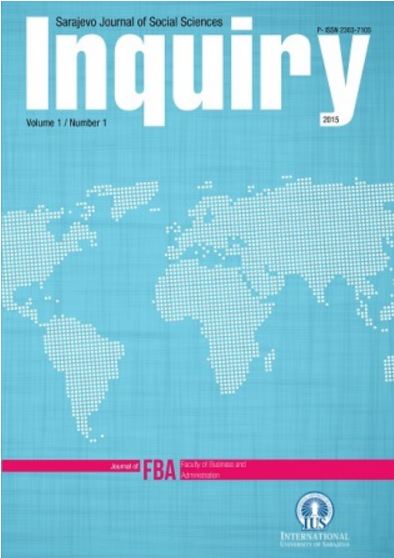The challenges of primary health care sector in the Federation of Bosnia and Herzegovina
The challenges of primary health care sector in the Federation of Bosnia and Herzegovina
Author(s): Ognjen Riđić, Senad Bušatlić, Edita Đapo, Tomislav Jukić, Sahrudin Sarajčić, Jasenko KaramehićSubject(s): Economy, National Economy, Business Economy / Management, Welfare systems, Health and medicine and law, Welfare services, Public Finances
Published by: International University of Sarajevo
Keywords: Primary health care organizations; funding; innovative management; leadership; limited resources;
Summary/Abstract: In today’s modern society innovating in every organization becomes a key of its competitive advantage and survival in the highly competitive market. This rule, sooner or later will have to be accepted by our primary sector health care organizations. All institutions must strive that by constant innovating, using in the best manner possible the limited and available resources, to, in the long term, ensure continuing business and better future. The scope of innovating activities must be all segments of the health care organizations. All employees must be involved in innovating process, and not only the research and development departments (R&D). The health care institutions, which constantly innovate, enjoy the permanent advantage in the competition with their competitors. They are able to produce products and services that are cheaper and of better quality. The innovation type, which the particular health care institution chooses, represents, in its essence, the nature of the innovation. It also includes the influence of change on the value chain participants, competence and firms’ inclination in tedious fields of innovation and innovative management. The modern markets require from the health care organizations to be more dynamic, and the environmental changes demand comprehensive innovative orientations. The people who kick start innovations in health care field are in principle leaders. The leadership variables become very important having in mind that almost all organizations, to a certain extent are built based on the hierarchical structure. As the result of this fact, the decision making centers tend to be concentrated in the hands of the leading individuals. The science has found the relationship between leaders’ motivations and the frequencies of the innovations. The health care in Federation of Bosnia and Herzegovina (F.B&H), and its entry and Primary care sector are faced with the serious challenges. Thus, innovating in this sensitive service field becomes the imperative for society. Innovating and at the same time, managing these processes is necessary for more reasons. Financial resources allocated for health care in B&H are limited, and are expected to remain so in the future. The second part of the challenges the health care sector is facing is represented in the aging of the population. The people live longer, and as the consequence, for the health maintenance of population over 65, more and more resources are spent. By innovating, best practice checking and waste reducing the immense savings can be achieved in the health care. These actions, as well as the quality applications of best practices will enable that health care outlays, (which exceed ten percent of gross domestic product (GDP) for B&H for 2011), shall, either remain stable or decline.
Journal: Inquiry - Sarajevo Journal of Social Science
- Issue Year: 1/2015
- Issue No: 1
- Page Range: 47-61
- Page Count: 15
- Language: English

